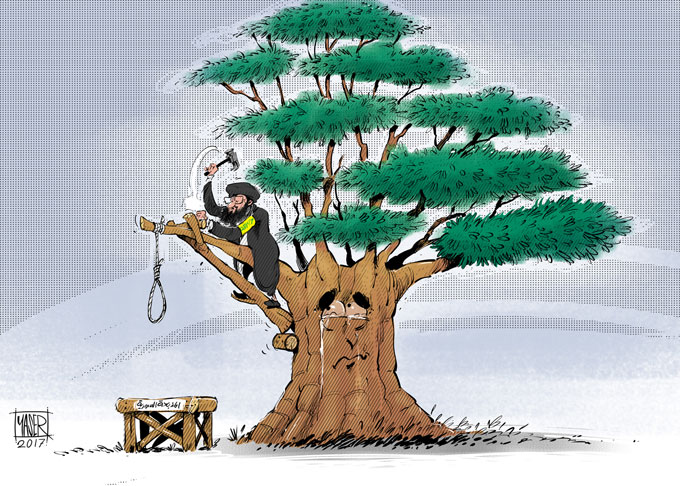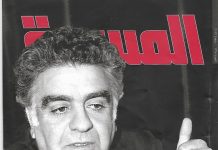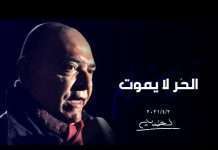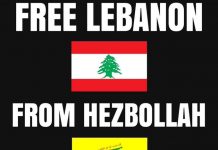
ماثيو لافت/فورن بولسي: حزب الله ليس متواجداً فقط في بيروت، بل هو موجود في نيويورك أيضاً
سكاي نيوز/15 حزيران/2019
كشف تقرير لمجلة “فورين بوليسي” الأميركية، أن قوات حزب الله كثفت أنشطتها خارج الحدود الجغرافية اللبنانية، لتصل إلى مختلف مناطق الشرق الأوسط. وأشار التقرير إلى إحباط مؤامرات خططت لها ميليشيات حزب الله في 3 قارات، هي أميركا الجنوبية وآسيا وأوروبا، متوقعا مخططات أخرى في أميركا الشمالية.
ولم تعد قوات حزب الله الذراع العسركية الإيرانية في لبنان وسوريا والعراق واليمن فقط، بل رُفعت بصماتها أيضا في دول كثيرة بتجارة المخدرات والتورط في أنشطة إرهابية.
وذهبت “فورين بوليسي” إلى أبعد من ذلك، إذ توقعت وصول أنشطة حزب الله المشبوهة إلى الولايات المتحدة نفسها.
وأكد تقرير للمجلة أن إستراتيجية حزب الله اعتمدت على جمع الأموال وغسيلها من كندا وصولا إلى مدينة ميامي، في ولاية فلوريدا جنوب شرقي الولايات الأميركية. وكشفت الصحيفة أن التحقيقات مع علي كوراني، المجند من قبل حزب الله في نيويورك، كشفت عن “معلومات مقلقة” بشأن حجم نشاط وعمليات الحزب في الولايات المتحدة وكندا، وخططه لشن هجمات فيهما. ووجهت السلطات الأميركية إلى كوراني تهمة مراقبة مكتب التحقيقات الفيدرالي (إف بي آي)، ومكاتب الخدمة السرية الأميركية، ومطار جون كنيدي. ويقول التقرير إن حزب الله أوفد كوراني أيضا إلى الصين، حيث كلفه بشراء مواد كيماوية تستخدم في صنع القنابل، ووصف مكتب التحقيقات الفيدرالي كوراني بأنه “بن لادن لبنان”. وتظهر معلومات خطيرة كشفتها المجلة الأميركية، عزم وخطط حزب الله على بناء “شبكاته الإرهابية” حول العالم علىحد تعبيرها، لتمويل أنشطته المشبوهة التي تزعزع الأمن والاستقرار بأمر وإيعاز من طهران.
Hezbollah Isn’t Just in Beirut. It’s in New York, Too.
ماثيو لافت/فورن بولسي: حزب الله ليس متواجداً فقط في بيروت، بل هو موجود في نيويورك أيضاً
Matthew Levitt/Foreign Policy/June 15/2019
In recent years, Hezbollah has stepped up its activities beyond Lebanon’s borders. This uptick has been clearest in the Middle East—in Iraq, Yemen, and especially Syria—but plots have also been thwarted in South America, Asia, Europe, and now, possibly, the United States.
Reports of Hezbollah activity in North America are not new, though such reporting tends to focus on the group’s fundraising, money laundering, procurement, or other logistical activities from Vancouver to Miami. But last month, the criminal prosecution and conviction in New York of the Hezbollah operative Ali Kourani revealed disturbing new information about the extent of Hezbollah’s operations and activities in the United States and Canada.
Taken together, the arrests in 2017 of Kourani and another Hezbollah operative, Samer el-Debek, led the U.S. intelligence community to revisit its longstanding assessment that Hezbollah would be unlikely to attack the U.S. homeland unless the group perceived Washington to be taking action threatening its existence or that of its patron—Iran. Following Kourani and Debek’s arrests, the director of the U.S. National Counterterrorism Center said in October 2017, “It’s our assessment that Hezbollah is determined to give itself a potential homeland option as a critical component of its terrorism playbook.”
At the time, little of the underlying information leading to this new assessment had been made public, but on May 16, a New York jury returned guilty verdicts on all counts in the indictment against Kourani, including terrorist charges related to his surveillance of FBI and U.S. Secret Service offices, as well as a U.S. Army armory, all in New York City. (Debek has yet to stand trial.)
Kourani carried out other operational activities as a long-term sleeper agent, acting on behalf of Hezbollah’s external attack-planning component, the Islamic Jihad Organization (IJO), such as identifying Israelis in New York who could be targeted by Hezbollah and finding people from whom he could procure arms that Hezbollah could stockpile in the area.
Most of his activities occurred in the United States, but Hezbollah also sent Kourani to China, where the group had previously procured chemicals used to make bombs of the kind the group built in Bulgaria, Cyprus, and Thailand. The 2012 bombing in Burgas, Bulgaria, left seven people dead including the bomber and 32 wounded, and bomb-making chemicals of the same type were found in Thailand in 2012 and in Cyprus in 2012 and 2015, when plots were thwarted there. Hezbollah also sent Kourani on operational assignments to Canada. Kourani described himself in interviews with FBI agents as being part of a “sleeper cell.”
“While living in the United States, Kourani served as an operative of Hezbollah in order to help the foreign terrorist organization prepare for potential future attacks against the United States,” said U.S. Assistant Attorney General for National Security John Demers. These included buildings housing the FBI and U.S. Secret Service in Manhattan, as well as New York’s John F. Kennedy International Airport and a U.S. Army armory.
Kourani comes from a family that’s well known in Hezbollah circles—he described them to the FBI as the “bin Ladens of Lebanon”—and he first attended a Hezbollah training camp as a teenager. But the group only recruited him into its elite IJO—Hezbollah’s external operations unit, also known at Unit 910—in January 2008, a month before the assassination of the IJO commander and longtime wanted Hezbollah terrorist Imad Mughniyeh in what was later revealed to be a joint U.S.-Israeli operation.
The timing is significant: It shows that that even before Mughniyeh’s death, Hezbollah was looking to rebuild its international terrorist networks. It is also significant because it put Kourani in the right place at the right time. In a video broadcast at Mughniyeh’s funeral, Hezbollah Secretary-General Hassan Nasrallah issued a not-so-veiled threat that attacks abroad would follow, saying, “With this murder, its timing, location and method—Zionists, if you want this kind of open war, let the whole world listen: Let this war be open.”
Trump’s Iran Crackdown Isn’t Enough to Stop Hezbollah
Unless Washington targets the group more effectively, it can outlive the pressure on Tehran.
Kourani held several meetings with FBI agents once they approached him in September 2016 saying they knew he was working for Hezbollah.Kourani held several meetings with FBI agents once they approached him in September 2016 saying they knew he was working for Hezbollah. Kourani claimed to seek a deal in return for being reunited with his wife and children, who had left him and were residing in Canada. No such deal was offered. Moreover, Kourani withheld key information and tried to use these meetings to elicit information from the agents interviewing him. The evidence at trial also included material from Kourani’s laptop, his email and Facebook records, and notes and other materials seized from his apartment.
His first step was to obtain U.S. citizenship and secure a U.S. passport, which he did at Hezbollah’s direction in 2009. Of course, he neglected to mention the circumstances on the form where it asked if he had ties to any terrorist organization. Kourani already had legal residency, obtained through his father. Later, in 2013, he applied for a passport card allowing him to cross the U.S.-Canadian or U.S.-Mexican border with an I.D. that fit in his wallet. This way, if authorities ever seized his U.S. passport while he was traveling abroad, he could still sneak back into the United States by flying to Canada or Mexico on his Lebanese passport and crossing back into the United States by land using the card.
Kourani warned FBI agents that Hezbollah’s IJO is “even more active in Canada than they were in the United States,” one of the FBI agents who interviewed him said during his trial. Indeed, Canada loomed large in Kourani’s operational plans. In 2012, he had married a Canadian-Lebanese dual citizen. Kourani later became estranged from his wife and children, but at the time, the FBI explained, he and his Hezbollah handler specifically discussed the operational utility of having family ties to Canada because “it wouldn’t appear suspicious or odd if he were to make travel to Canada with some regularity or frequency.”
Prosecutors concluded Kourani and his handler saw distinct advantages to Kourani having ties to Canada “so he could travel back and forth to Canada to conduct operations.”Prosecutors concluded Kourani and his handler saw distinct advantages to Kourani having ties to Canada “so he could travel back and forth to Canada to conduct operations.” The two discussed the possibility of Kourani transporting correspondence or operatives into Canada, which Kourani insists he never did. But the two did specifically discuss the spy tradecraft Kourani would employ to pass along messages for Hezbollah, using dead drops so he and local Hezbollah operatives would not be able to identify one another according to what Kourani described to the FBI as “the golden rule” of Unit 910: “the less you know the better it is”.
Kourani was well schooled in the ways of Unit 910, given that his Hezbollah IJO handler was none other than Fadi Kassab, the man FBI agents said Kourani had described as “responsible for IJO operatives in both the United States and Canada.” Even as he was running Kourani as an agent in New York, the Lebanon-based Kassab played hands-on roles in the Hezbollah attack in Bulgaria in 2012, according to Kourani’s statements to FBI agents.
One of the missions Hezbollah assigned to Kourani was to collect detailed information about two international airports: New York’s JFK and Toronto’s Pearson International Airport.One of the missions Hezbollah assigned to Kourani was to collect detailed information about two international airports: New York’s JFK and Toronto’s Pearson International Airport. Based on documentation of his travel, U.S. prosecutors showed that Kourani traveled through JFK 19 times and through Pearson seven times.
Kourani told the FBI that he provided Hezbollah with details about security procedures, the uniforms worn by security officers, and whether the officers were armed. His surveillance, Kourani told the FBI, focused on exit points, security checkpoints, camera locations, baggage claim procedures, and what questions airport screeners asked passengers.
Aside from carrying out surveillance himself, Kourani also plied airport employees for information, some of whom understood they were providing information for Hezbollah while others were unwitting. For example, Kourani told the FBI about one airport employee in Canada, who appears to have unwittingly provided Kourani information about Canadian airport security. The two would smoke a hookah together, and the airport employee would casually answer Kourani’s questions about the locations of cameras and magnetometers. Kourani said he could ask the man to carry a bag onto an airplane for him, and he would do it.
According to a U.S. prosecutor’s statement during the trial, Hezbollah was “thinking about how to get terrorists, and weapons, and contraband through airports, from Lebanon into Canada, from Lebanon into the United States.”Hezbollah was “thinking about how to get terrorists, and weapons, and contraband through airports, from Lebanon into Canada, from Lebanon into the United States.”
During one of Kourani’s meetings with the FBI, an interviewing agent recalled, Kourani “sat back in his chair, squared his shoulders [to the interviewing agents] and stated, ‘I am a member of 910, also known as Islamic Jihad or the Black Ops of Hezbollah. The unit is Iranian-controlled.’” Within Hezbollah, the unit reports directly to Nasrallah, according to Kourani, but Iran oversees the unit’s operations.
In the 1990s, U.S. intelligence agencies downplayed the likelihood of Hezbollah attacking U.S. interests, unless Washington directly threatened Hezbollah. In the wake of 9/11, increased U.S. counterterrorism efforts began to impact Hezbollah. A year later, the FBI reported to Congress in 2002 that Hezbollah operatives “have reportedly been tasked with surveillance of potential targets in the United States.” But in those past cases, FBI investigations determined that “such taskings to date appear to have been intended as a vetting tool to establish the individual’s loyalty to Hezbollah and Iran.” Six years later, Mughniyeh was assassinated, just after Kourani’s IJO recruitment. By then, IJO preoperational surveillance missions took on much more practical implications because of Hezbollah’s desire to avenge Mughniyeh’s death.
The group’s goals changed considerably between 2002 and 2008. Kourani informed the FBI that “there would be certain scenarios that would require action or conduct by those who belonged to the cell.” Kourani said that in the event that the United States and Iran went to war, the U.S. sleeper cell would expect to be called upon to act.Kourani said that in the event that the United States and Iran went to war, the U.S. sleeper cell would expect to be called upon to act. And if the United States were to take certain unnamed actions targeting Hezbollah, Nasrallah himself, or Iranian interests, Kourani added, “in those scenarios the sleeper cell would also be triggered into action.”
The United States has, of course, taken actions adverse to Iranian and Hezbollah interests—withdrawing from the Iran nuclear deal, reimposing sweeping sanctions on Iran, sanctioning Hezbollah, and participating in the assassination of Imad Mughniyeh, to name a few—and IJO operatives have never carried out a bombing or shooting in North America.
Hezbollah plots have been foiled over the past few years in Peru and Bolivia, but the revelation that Hezbollah conducted extensive surveillance activity in the United States and Canada over the past few years—explicitly tied to the group’s intent to exact revenge for the death of Mughniyeh—is deeply disturbing. Hezbollah has crossed a threshold and is, at a minimum, developing North American networks capable of executing attacks should the group’s leadership deem them necessary.
*Matthew Levitt is the Fromer-Wexler Fellow and Director of the Stein Program on Counterterrorism & Intelligence at The Washington Institute for Near East Policy. He is the author of Hezbollah: The Global Footprint of Lebanon’s Party of God. Twitter: @Levitt_Matt
Click here to read the above report in the Foreign Policy site
https://foreignpolicy.com/2019/06/14/hezbollah-isnt-just-in-beirut-its-in-new-york-too-canada-united-states-jfk-toronto-pearson-airports-ali-kourani-iran/?fbclid=IwAR1KHDISPtonxXsB5dcLreuZnrzmyJJs-p_C1rrxalQnrPDpEyDuycVuFGg



















